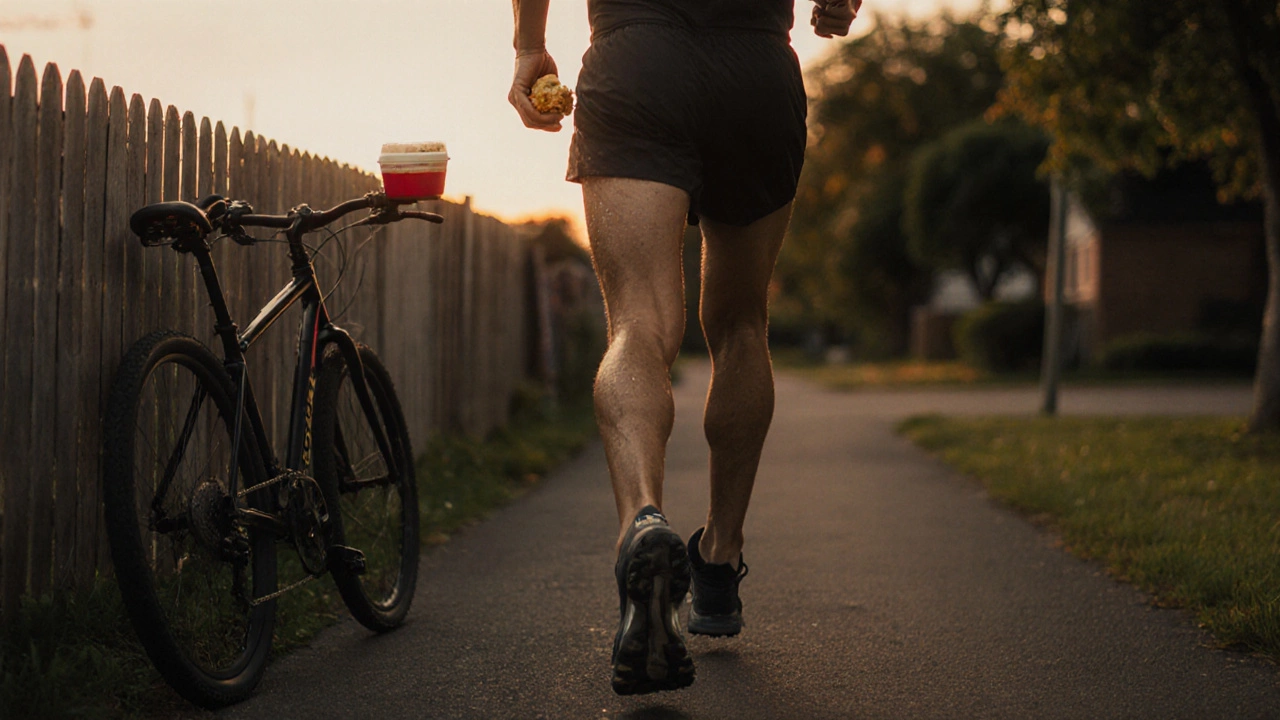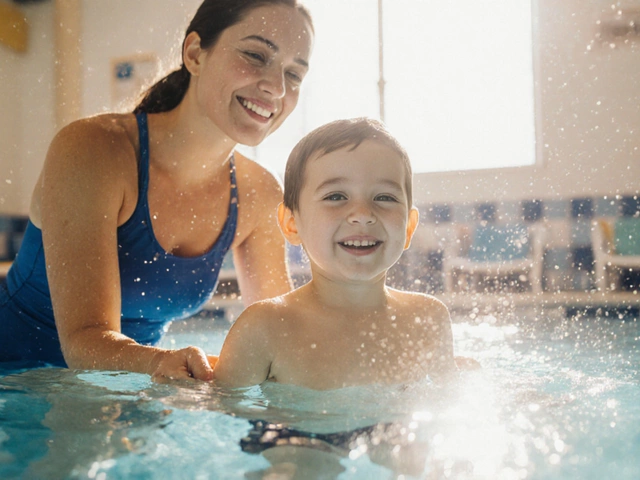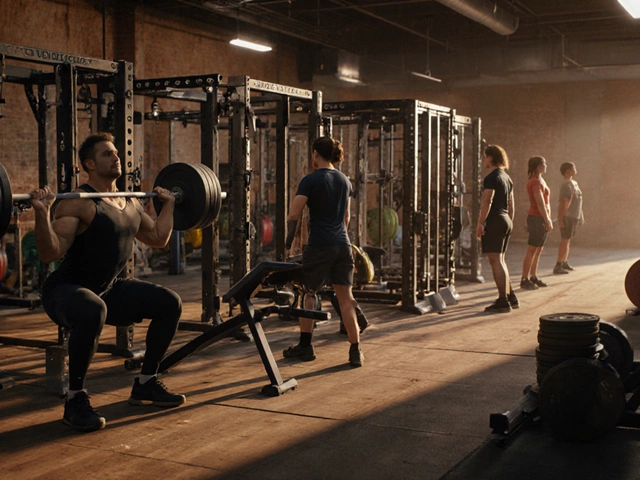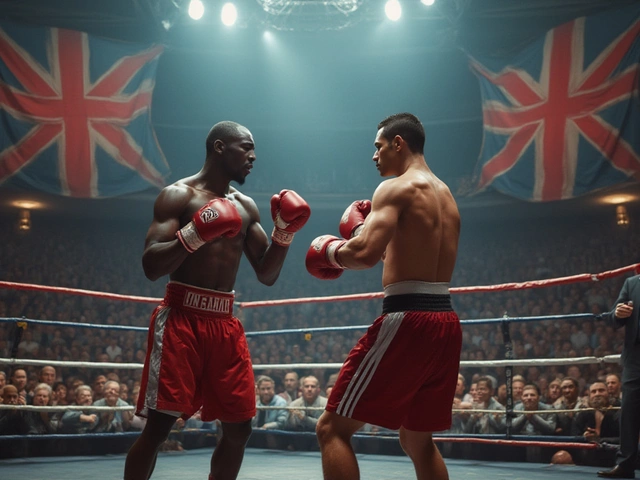
Sports Equipment October 30, 2025
What Do Athletes Need Most? The Real Essentials Beyond Gear
Recovery Impact Calculator
Calculate Your Recovery Impact
Ask any athlete what they need most, and you’ll hear a long list: the right shoes, a new bike, the latest smartwatch, a custom jersey. But here’s the truth most people miss-equipment isn’t what athletes need most. It’s what they think they need. What they actually need is far simpler, far more human, and often ignored until it’s too late.
Recovery Is the Real Game-Changer
Elite athletes spend more time recovering than training. That’s not a myth. A 2023 study of Olympic track and field athletes showed they averaged 9.2 hours of sleep per night during peak training-30% more than the average adult. And it wasn’t just sleep. Ice baths, compression gear, massage therapy, and structured rest days made up nearly 40% of their weekly schedule.
Think about it: no amount of expensive cleats or carbon-fiber frames will help if your muscles are fried. Your body doesn’t get stronger during workouts. It gets stronger when you’re lying on the couch, sleeping, or stretching. That’s why the best athletes don’t just buy gear-they invest in recovery tools. Foam rollers, cryo boots, sleep trackers, even white noise machines. These aren’t luxuries. They’re non-negotiable.
Consistency Beats Cool Gear Every Time
Look at the most successful athletes in any sport. What do they have in common? Not the flashiest equipment. They have consistency. A runner who trains 4 times a week in $80 shoes outperforms the one who trains twice a week in $300 shoes. A cyclist who rides 100 miles every weekend on a 5-year-old bike beats the weekend warrior who buys the latest model but only rides when it’s sunny.
Equipment can help, but it can’t replace routine. The real need? A plan. A schedule. A habit. Most athletes fail not because their gear is bad, but because they skip workouts when they’re tired, skip stretching when they’re busy, skip protein when they’re on the go. The best equipment in the world won’t fix a broken routine.
Support Systems Are the Hidden Gear
Who’s the first person an athlete calls after a bad race? Not their coach. Not their sponsor. Usually, it’s a friend, a partner, or a family member. Emotional support isn’t optional. It’s part of the training. A 2024 survey of NCAA athletes found that those with strong personal support networks were 65% less likely to burn out or quit.
Coaches can teach technique. Nutritionists can plan meals. But only a trusted person can listen when you’re ready to quit. That’s why mental health resources, therapy, and even group training communities are now as vital as the gear in your locker. You don’t need a $1,200 smart helmet to stay mentally sharp-you need someone who knows your name and won’t let you disappear into isolation.

Proper Nutrition Isn’t About Supplements
Walk into any gym, and you’ll see shelves of protein powders, pre-workout drinks, and amino acid pills. But the real fuel for athletes? Real food. A study from the University of Colorado tracked 200 collegiate athletes over six months. Those who ate whole foods-lean meats, vegetables, complex carbs, healthy fats-performed better, recovered faster, and got sick less often than those who relied on supplements.
Supplements have a place. But they’re not the answer. The real need? Simple, consistent eating. Eating enough calories. Eating at the right times. Eating food your body recognizes. An athlete doesn’t need a $50 tub of creatine. They need to eat a chicken breast and sweet potato after training. That’s the foundation. Everything else is decoration.
Good Coaching > Expensive Gear
One good coach can change an athlete’s career. One bad coach can end it. The difference isn’t in the equipment they use-it’s in how they see you. A great coach notices when your form is off before you feel pain. They know when to push you and when to hold back. They adjust your plan when you’re tired, injured, or stressed.
Compare that to buying a $2,000 treadmill with 50 pre-set workouts. It won’t tell you when you’re overtraining. It won’t notice your shoulder is tight. It won’t ask if you’re sleeping. Technology can track your heart rate. But only a human can understand your story.
That’s why the most successful athletes don’t just hire coaches-they build relationships. They find someone who knows their history, their fears, their goals. That’s the gear no store sells. And it’s the most valuable thing they own.

What Athletes Really Need: A Simple List
Let’s cut through the noise. Here’s what athletes need most, ranked by impact:
- Recovery time-sleep, rest, active recovery. No shortcuts.
- Consistent training-showing up, even when you don’t feel like it.
- Emotional support-someone who believes in you when you doubt yourself.
- Real food-not supplements, not shakes. Actual meals.
- Good coaching-not just someone who gives drills, but someone who sees you.
Everything else? Shoes, bikes, heart rate monitors, smart apparel-they’re tools. Helpful, yes. Necessary? Not even close.
What Happens When You Skip the Essentials
Look at the injuries. Look at the burnouts. Look at the athletes who quit before they ever reached their potential. Almost always, it’s not because their gear failed. It’s because they ignored the basics.
Someone buys a $1,000 running shoe, trains hard for three weeks, skips sleep, eats fast food, and ignores their nagging knee pain. They think the shoe will save them. It doesn’t. The injury comes. The frustration follows. They blame the brand. They buy a new pair. The cycle repeats.
Meanwhile, the athlete who trains in $60 shoes, sleeps 8 hours, eats dinner with their family, and talks to their coach every Monday? They’re still going. Five years later. Still improving. Still happy.
Final Thought: Gear Is a Tool, Not a Solution
There’s nothing wrong with good equipment. It helps. It can make training easier, safer, more efficient. But it’s not the reason someone becomes great. It’s never been.
Great athletes aren’t made by the gear they own. They’re made by the habits they keep, the people they trust, the rest they take, and the food they eat. The rest? That’s just noise.
If you want to know what athletes need most-look past the ads. Look past the hype. Look at the ones who’ve been doing it for years. What do they have in common? Not the best gear. The best routines. The quiet, boring, unglamorous stuff that no one sells on Instagram.
That’s what really matters.




